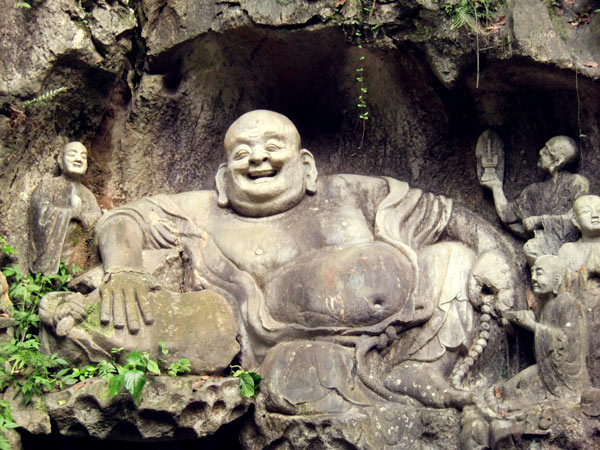Is Buddhism in China differs from the rest of the world? Is it allowed to be a Buddhist?
Buddhism is the most important religion in China.
When did Buddhism arrived to China?
It is generally believed that it was spread to China in 67 AD during the Han Dynasty (206 BC-220) from Hotan in Xinjiang to Central China. During its development in China, it has a profound influence on traditional Chinese culture and thoughts, and has become one of the most important religions in China at that time.
One significant difference between Chinese Buddhism and original Buddhist teachings is the belief that Buddha is not just a teacher who taught followers what to do, but a god to be prayed to for help and salvation.
Chinese Buddhism is a part of Mahayana School. For Chinese Buddhists the Buddha is not only the founder of Buddhism – Siddhartha Gautama, but also Amitabha Buddha who is living in the different state of existence.

You’ve might seen the Laughing Buddha or Budai. He is not a future Buddha or the founder of Buddhism. He was a monk who lived over 1000 years ago. The Laughing Buddha is not worshipped. He is there only to help bring good energy, prosperity and luck.
Chinese Buddhism is a great mix of Buddhism, Daoism and Confucianism.
The various schools that retained the greatest vitality in China were the Chan school (better known in the West by its Japanese name, Zen), which was noted for its emphasis on meditation, and the Pure Land tradition, which emphasized Buddhist devotion.
Common practices include:
- worship of Buddhas and bodhisattvas
- through offerings of incense, flowers, food, etc.
- offerings to Devas who reside in the heavenly realm
- paying respect to dead ancestors during Qingming and Hungry Ghost festival
- performance of religious ceremonies to help souls of the deceased find peace
- forming affinities with other people, through gifts and acts of service
- vegetarianism: monastics are required to be vegetarian, devout laity are also often vegetarian
- compassion towards all living beings through activities such as “life release”
Common beliefs include:
- existence of gods, ghosts and hell realm
- reincarnation, or more technically, rebirth, according to one’s karma
- karmic retribution, ethically cause and effect



